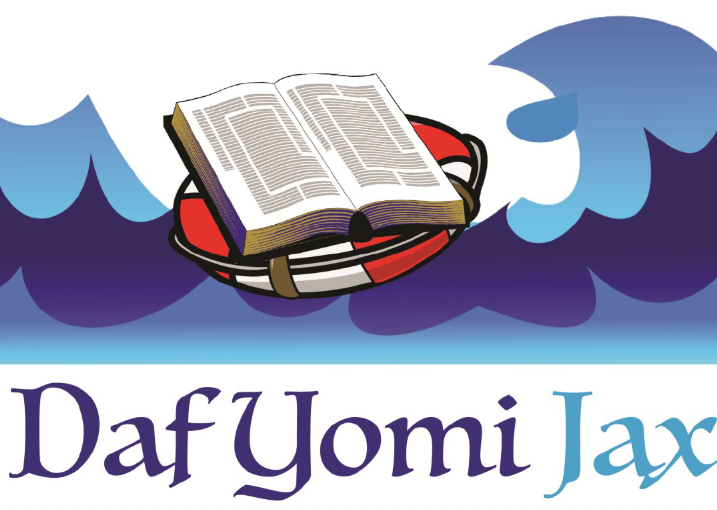Yoma 33-39 יומא ל”ג-ל“ט

From the Desk of Rabbi Yaakov Fisch
One of the primary reasons we tell ourselves that we cannot spend more time studying Torah is because we are so busy. Our studies in the Daf Yomi address this in a head-on manner this week. The Gemara quotes Rabbi Elazer Ben Charsum who was extraordinarily wealthy and yet made it a priority to study Torah. On the other end of the spectrum, it quotes Hillel, who despite being extremely poor but nonetheless spending his meager income so he could study Torah. He once did not have enough money to gain entry into the Beis Midrash, and he went on to the roof to listen in to the Torah coming through the skylight. The Gemara concludes that Rabbi Elazar makes the wealthy accountable and Hillel makes the poor accountable in their responsibility for Torah Study. I think this message is an excellent reminder for us as we are so busy, but that does not exempt us from the obligation to study Torah daily.
Have a Great Shabbos,
Rabbi Yaakov Fisch
Yoma 33
The Gemara explains the reason why the removal of the inner ashes should be done before setting up the lamps for the Menorah. It is based on the concept of אין מעבירין על המצות which means that if you encounter an opportunity for a mitzvah, one should not pass up the opportunity. In this case, when a person enters the Beis Hamikdash, he encounters the Mizbeiach (altar) before encountering the Menorah. This is a fairly universal rule that is applied here by Rava. One can ask, what would the logic of Abaya who opposes Rava’s interpretation אין מעבירין על המצות? Rav Moshe Feinstein explains that the rule of אין מעבירין על המצות teaches us not to pass up an opportunity for the Mitzvah. However, in this situation, the Kohen has two mitzvahs to choose from (setting up the Menorah and removal of the ashes).
Since each component of this Avoda is considered a Mitzvah, it is not appropriate to suggest אין מעבירין על המצות. Rava would disagree on this and maintain that אין מעבירין על המצות is applicable when one is engaged in two activities of Mitzvah and that one should perform the Mitzvah which is in closer proximity to the person.
Yoma 34
The Gemara discusses why the Morning Tamid was brought as the first part of the Avoda in the morning. Rava explains that it is learned out of the verse העולה היא עולה ראשונה. According to Rashi, it is special teaching from this verse that the Morning Tamid must be brought as the first sacrifice of the day. Tosfos challenges this by asking, why is it necessary to have a verse teach us that the morning Tamid is brought first! We have a rule that anything is is brought more frequently (Tadir) takes precedence to anything that is not brought frequently (not Tadir)! This is known as the rule of תדיר ושאינו תדיר תדיר קודם. Tosfos responds that the rule of Tadir only teaches us that the shechita of the morning Tamid must be brought first. The verse is necessary to teach us that the haktara (bringing of the parts) is brought before any other Korban as well. In regards to the rule of Tadir taking precedence, in some cases, the ruling is unclear. If someone arrives late to shul on Shabbos and the Minyan is up to Mussaf, what should he daven first?
Should he daven Shacharis first as Tadir, or should he daven Mussaf first as that is where the minyan is up to? A similar question was asked in Zevachim (91a) and not resolved. The Be’er Yitzchak says that he may daven whichever he chooses. This is based in the Rambam that rules that since the question was unresolved, he may choose Mussaf even though Shacharis is considered the Tadir. However, Rav Moshe Feinstein disagrees and says that one must daven Shacharis first even though it would not be with a Minyan. He argues that Shacharis comes first is not just because of Tadir but as our Gemara indicates, there is a particular verse that teaches us this Halacha. It is known that Shacharis is modeled after the Morning Tamid and therefore should take precedence to Mussaf even in this situation.


Yoma 35
The Gemara relates a powerful story about the dedication of Torah study to Hillel. He was extremely poor who would contribute half of his wages in order to gain entry to the Beis Hamidrash so he can learn. One day he was unable to make the necessary salary and unfortunately could not gain entry to the Beis Hamidrash. He climbed onto the roof and lay on the sky light in order to hear the words of Torah. There was a near tragedy as there was much snow that fell on him and it endangered his life. A question that is asked is there is a Halacha that one is not required to spend more than a fifth of his assets on a mitzvah! Why was Hillel contributing more than a fifth of his assets to gain entry for Talmud Torah?
The Likutei Halachos explains that the requirement that one not spend more than a fifth is for the Mitzvah of Tzedaka. When it comes to the Study of Torah, there is no limit as to what someone can spend.



Yoma 36
There is a dispute between Rabbi Meir and the Sages about the proper order for the recitation of the vidui. According to Rabbi Meir, the appropriate order is עון ופשע וחטאה. The Sages object to this since חטא is referring to an unintentional sin. The word עון is referring to an intentional sin and פשע is referring to a intentional sin that is performed out of rebellion. The Sages argue that it would appropriate to say חטאתי ועויתי ופשעתי as one begins with the least severe sin of unintentional and then builds up to the intentional sin. What would be the rationale of Rabbi Meir? Why does the vidui not begin with the unintentional sins?
The Maharsha explains that according to Rabbi Meir, the vidui starts with the sin which is performed most frequently which is the unintentional sin. The Ben Yehoda has a different perspective. He explains that since a person is engaged in willful sins, that will eventually lead to unintentional sins. This is because the individual has demonstrated that he is callous with sins. It turns out that the result of his willful transgressions lead to unintentional sins, and that is the reason why Rabbi Meir lists חטאתי as the final component of the vidui.
Yoma 37
The Gemara discusses the special chandelier that Queen Helene donated. This decorative gold chandelier was located above the entrance of the Sanctuary. It was taught in a Mishna: When the sun rose, sparks of light would emanate from the chandelier, which was polished, and everyone knew that the time to recite Shema had arrived. The ideal time to recite Shema is at the moment of sunrise. Abaya clarifies that this chandelier was used as an indicator for the rest of the people in Jerusalem, who recited Shema at the appropriate time to recite Shema. Tosfos objects to this assertion that the appropriate time for the recitation of the Shema is at sunrise. He quotes the Gemara in Berachos, which states that the ideal time for Shemone Esrei would be at Vasikin. The time of Vasikin is at sunrise, which means the recitation of the Shema is before sunrise!! Why was it important for everyone to know the time of sunrise in relation to the recitation of the Shema?? The Ri responds that everyone agrees that one could recite the Shema after sunrise.
However, since not everyone was familiar with the time of Vasikin this chandelier was helpful in that regard. Rabbeinu Tam argues that it is not ideal to recite the Shema before sunrise. Some have an eagerness to daven Shemone Esrei at Neitz/sunrise, but the cost is reciting Shema before the ideal time. The Shulchan Aruch does not appear to be concerned with the position of the Rabbeinu Tam. He rules in Ch. 89:1 of the laws of Tefila that the ideal time for Shemone Esrei is at sunrise. That would mean that the Shema is recited prior to sunrise. The Mishna Berura points out that it would be ok as long as the Shema is recited after Mi Sheyakir. There are different interpretations to Mi Sheyakir and our shul’s practice is at 50 minutes before sunset. These are the words of the Shulchan Aruch. זְמַן תְּפִלַּת הַשַּׁחַר, מִצְוָתָהּ שֶׁיַּתְחִיל עִם הָנֵץ הַחַמָּה, כְּדִכְתִּיב יִרָאוּךָ עִם שָׁמֶשׁ. These are the words of the Mishna Berura: ומ״מ יש ליזהר שלא לקרות ק״ש כ״כ בהשכמה דהיינו קודם שיראה את חבירו ברחוק ד׳ אמות ויכירנו דזה אסור לכתחלה וכדלעיל בסימן נ״ח עיי״ש
Yoma 38
The Mishna criticizes the families of Garmu and Avtinas for viewing their talents to make the showbread and ketores/incense in proprietor fashion and unwilling to share it with anyone. The Sages criticized these families for their actions as selfish and not being for Heaven’s sake. The Gemara quotes the members of these families as defending their practice. The stated reason for making this a closely held secret as they believed that one day when the Beis Hamikdash would be destroyed, they were afraid that the family secret would fall into the wrong hands and even be used for idol worship. A question can be asked is that if they had a good motivation as to not share the secret of their skills, who were they so bitterly criticized? I want to suggest an answer based on the Gemara in Bava Basra, which states that Penina, who antagonized Chana for not having kids acted for the sake of Heaven (l’shem shamayim). The reason for this behavior was to motivate Chana to pray for children. Chana did fervently pray for kids and she gave birth to Shmuel. Nonetheless, Penina was punished for her actions. The fact that she acted with noble intentions is not considered an appropriate defense. As Rabbi Chaim Shmeulevitz explains, if you burn a house down for the sake of Heaven, the home still burns, no matter the intentions. The same idea can apply in our case as well. Although the families of Garmi and Avtinas may have had noble intentions, it is nonetheless considered inappropriate because the Sages condemned their actions of not sharing the skill and talents that G-d blessed them with.
Yoma 39
The Gemara states when there was a limited supply of foods and a scarce supply of food was used for the purpose of the Omer, Shtei Halechem, and Lechem Hapanim. They were reduced to giving an insufficient quantity for the Kohanim, and that was the size of the bean, which was not really an adequate amount as it was less than a Kezayis. The modest Kohanim known as the צנועין would not muscle their way to receiving any food allotments as the supply was pretty scarce. The Tosfos Yeshonim qualifies this statement. He argues that the reason the צנועין were modest was that they were not receiving the good shiur of a kezayis. However, if there was an adequate supply of food and there was a distribution of a kezayis, the צנועין would not be as polite, and instead they would assert their privilege of receiving the full amount. Based on this, the Chasam Sofer challenges the Magen Avraham in the laws of Tefila who derives the halacha sourced in our Gemara that one should never be assertive or muscle their way to being a shaliach tzibbur. However, the Chasam Sofer argues that our Gemara only applies because there was no real obligation as the quantity was inadequate as it was less than a kezayis!! It must be said that the Magen Avraham has a different interpretation on our Gemara than the Tosfos Yeshonim. He must conclude that our Gemara applies regardless if there was an adequate amount of food for the mitzvah. Even in a situation, where there would be an adequate amount of food, the צנועין would not be assertive in receiving their portion. This leads the Magen Avraham to conclude that one should not be aggressive in positioning oneself to be a shaliach tzibbur in a minyan. These are the words of the Magen Avraham: ואין להתקוטט בעבור שום מצוה שהרי שנינו הצנועים מושכים ידיהם מלחם הפנים
Weekly Quiz
-
1.Please give an example of not passing up a (אין מעבירין על המצות) Mitzvah.
-
2. What was the first Korban brought every morning? Why?
-
3. Please give an example of דבר שאין מתכוין that was brought down as issue on Shabbos.
-
4. Hillel, Rabbi Elazar Ben Charsum and Yosef teach us one thing. What is that?
-
5. What is the dispute between Rabbi Akiva and Rabbi Yosi regarding non slaughtered meat?
-
6. What is the dispute between Rabbi Meir and the Sages regarding Vidui?
-
7. Who accompanied the Kohen Gadol when he drew the lots?
-
8. What did Queen Helene donate to the Beis Hamikdash?
-
9. Why were the families of Garmu and Avtinas criticized?
-
10. In what way do we see that the Torah was sensitive to peoples finances?
